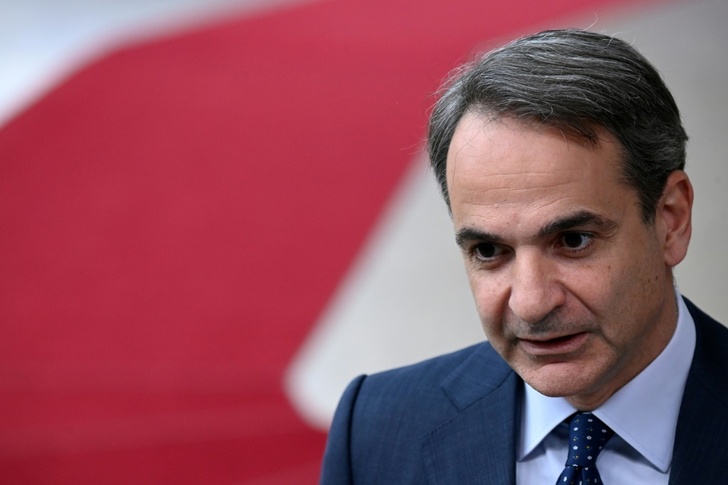Greece's prime minister on Tuesday announced May 21 elections as popular anger seethes over government failures blamed in last month's train tragedy that killed 57 people.
PM Kyriakos Mitsotakis, whose four-year term is to end in July, is seeking re-election on pledges of safety improvements after the nation's worst rail disaster and strengthening the economy.
"The country and its citizens need clear horizons," Mitsotakis told the cabinet. "National elections...will be held on Sunday 21 May," he said.
The timing is designed to avoid disrupting Greece's all-important tourism season, he added.
The train tragedy, exactly one month ago, sparked a wave of protests against his conservative government, some of them violent.
Mitsotakis, 55, has vowed a complete overhaul of Greece's train network, pledging to install electronic safety systems by the end of September if re-elected.
"We are here to correct (mistakes)," he said Tuesday.
- Warnings of rail risks -
Railway unions had long warned the network was underfunded, understaffed and accident-prone after a decade of spending cuts.
Greece's rail watchdog earlier this month said it had found serious safety problems across the network, including inadequate basic training for critical staff.
On February 28, a passenger train and a freight train collided head-on after running on the same track for several kilometres.
Most of the victims were university students returning from a long holiday weekend.
The stationmaster on duty during the crash has been placed on pretrial detention on charges of endangering public transport and negligent homicide.
He faces up to a life sentence if convicted.
Three other railway officials -- two other stationmasters and a shift supervisor -- have also been charged in connection with the disaster.
The two other stationmasters have been set free on bail after testifying this week.
The supervisor will appear before a prosecutor on Thursday.
The latest polls have shown the prime minister's conservative New Democracy party holding onto a slim lead of around four points over the leftist Syriza party of former premier Alexis Tsipras.
Mitsotakis says his administration has helped turn around the Greek economy, lowering taxes, reducing unemployment and promoting growth above the EU average.
The economy is slated to grow by 2.3 percent this year according to the finance ministry.
But the ruling party is burdened by a wiretap scandal in which the head of the Greek socialist party was found to have been under surveillance by state intelligence.
The head of Greece's intelligence agency resigned over the case, as did a senior PM aide who is Mitsotakis' nephew.
Members of the prime minister's own cabinet, prominent businessmen and journalists were also under surveillance in a separate operation involving illegal spying software called Predator, according to reports.
Mitsotakis has called the reports "an incredible lie" and in January survived a no-confidence vote on the scandal.
The government last week said it had no comment on a New York Times report that a Greek-American former Meta manager was also under surveillance by state intelligence.
The May 21 ballot will be held under a proportional representation system that most analysts believe is unlikely to produce a clear winner.
If needed, follow-up elections will be held by early July at the latest, Mitsotakis said Tuesday.
"In an exceptionally unstable world, the country needs stable leadership," the prime minister said.
A new law would apply in a July ballot, giving the winning party between 20 and 50 additional seats in parliament, depending on its final percentage in votes.
The ruling party says it will be able to score a workable majority in July, warning voters that coalition governments rarely work in Greece.
"In Greece, there are no political raw materials for efficient coalition governments...this is confirmed by historical experience," government spokesman Yiannis Economou told reporters.
Α coalition between New Democracy and the socialist Pasok party was in power from 2012 to 2015. It was succeeded by another coalition between leftist Syriza and the Independent Greeks nationalist party from 2015 to 2019.
jph/cw
© Agence France-Presse
Your content is great. However, if any of the content contained herein violates any rights of yours, including those of copyright, please contact us immediately by e-mail at media[@]kissrpr.com.
Source: Story.KISSPR.com

